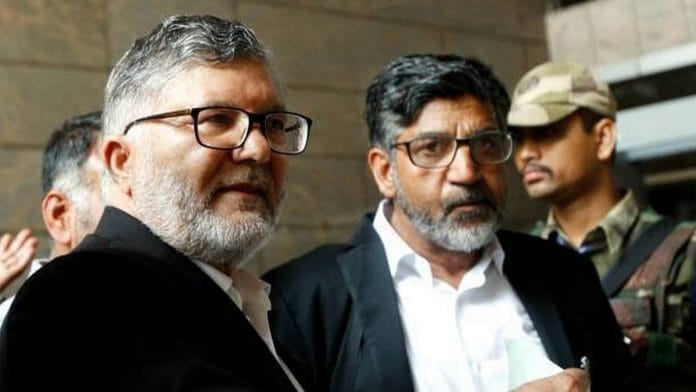Srinagar: The Jammu and Kashmir High Court Friday dismissed a petition challenging the detention of Kashmir Bar Association president Mian Abdul Qayoom under the Public Safety Act (PSA) and held that preventive detention was not a punitive measure.
Qayoom was detained on 5 August last year — the day the Centre announced the abrogation of Article 370 — and has since remained under detention. The 76-year-old was later shifted to a jail in Agra, where his health deteriorated. He was brought to Delhi’s Tihar Jail last week.
While dismissing the petition, Justice Tashi Rabstan described personal liberty as the most cherished freedoms guaranteed under the Constitution in Article 22, but with a caveat. He cited observations made by the Supreme Court in ‘The Secretary to the Government, Public (law and order-F) and another vs Nabila and another (2015)’ case, which said, “Where individual liberty comes into conflict with the interest of the security of the state or maintenance of public order, then the liberty of the individual must give way to the larger interest of the nation.”
The court also quoted Greek thinker Sophocles and said, “Law can never be enforced unless fear supports them.” It said that a preventive law is valid as authorities have no objective standard for ordering it and leaves the matter to subjective satisfaction.
“Having said that, subjective satisfaction of the detaining authority to detain a person or not is not open to objective assessment by a court. A court is not a proper forum to scrutinize the merits of administrative decision to detain a person,” Justice Rabastan said in his judgment.
The petitioners in their plea had questioned the grounds of Qayoom’s detention, stating that the same was signed by the District Magistrate “without application of mind and without going through the grounds of detention”.
“Grounds of detention according to petitioner, are vague, indefinite, uncertain, and baseless as also ambiguous and lack in material particulars and essential details, which has rendered the detenue, unable to make an effective representation against his detention to appropriate authority,” the petitioners had submitted.
The court, however, also observed the essential concept of preventive detention is that “the detention of the person is not to punish him for what he has done but to intercept and prevent him from doing it.”
(With inputs from PTI)
Also read: Omar Abdullah and Mehbooba Mufti detained under Public Safety Act







The Court seems to be allowing the widest possible latitude to the executive. If subjective satisfaction of the detaining authority is not subject to objective assessment by a court, nothing remains of the power of judicial review.